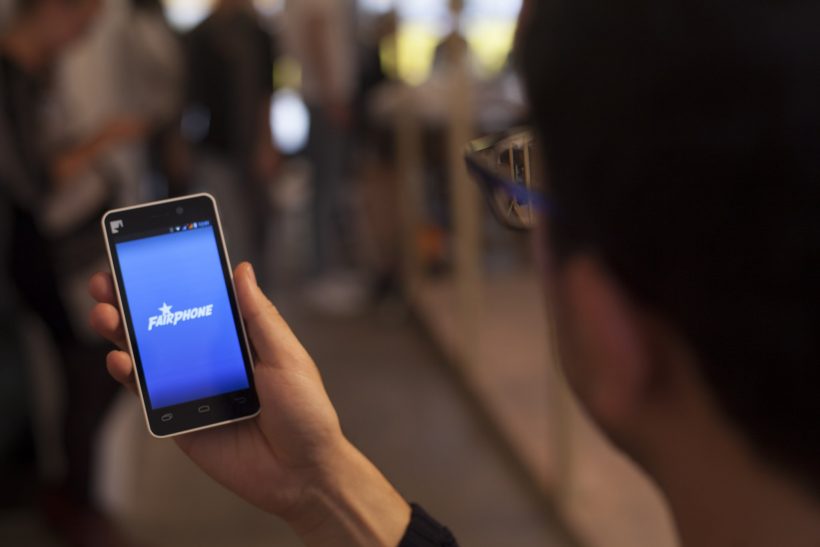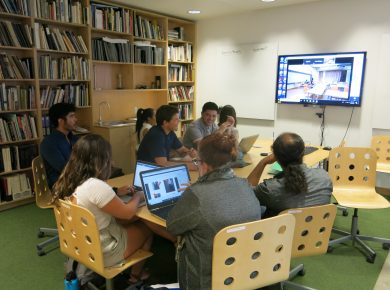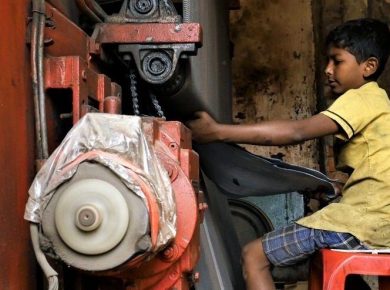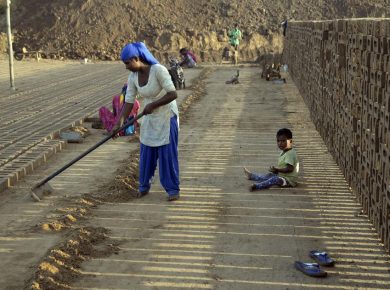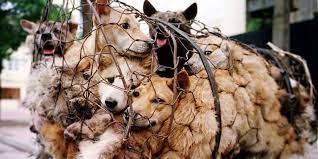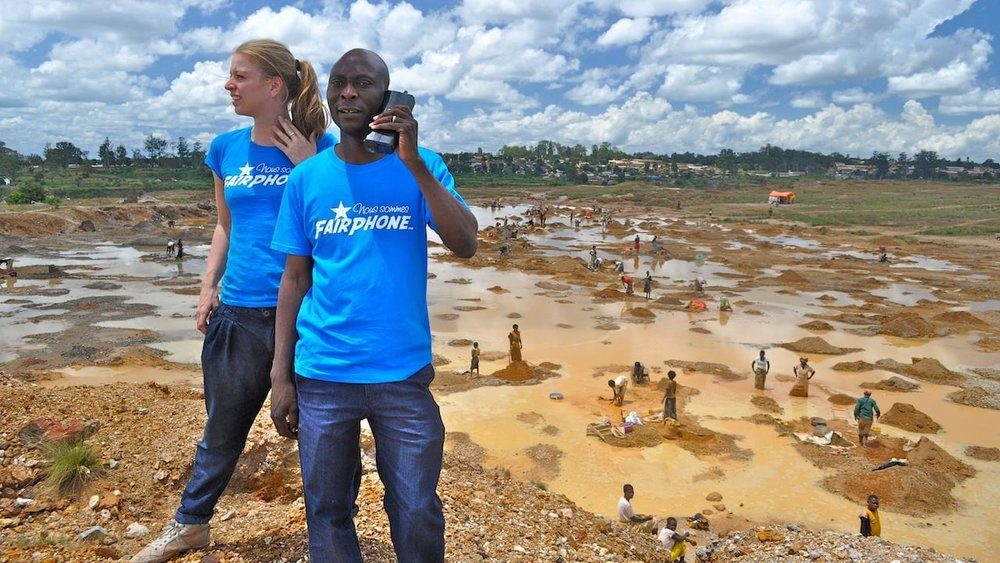
Fairphone staff on a fact-finding mission to DRC in 2011. Picture: Fairphone.
In a short film by Sky News about the conditions of a cobalt mine in the Democratic Republic of Congo, an 8-year-old boy called Dorsen stands in the rain as men throw a sack of cobalt onto his back. His eyes are red raw from exhaustion, he hasn’t eaten in days. His mother died long ago. If he doesn’t work quickly enough, he is threatened with a beating.
Dorsen is just one of an estimated 40,000 children, some as young as 4, working 12 hour days in the hellish cobalt mines of DR, collecting the mineral described by Goldman Sachs as ‘the new gasoline’, so that people in rich countries can buy new mobile phones and electric cars. But one company is trying to change all this. Founded in 2013 by Dutch designer Bas Van Abel, Fairphone is the only technology company in the world that produces a fair-trade smartphone.
“We didn’t start as a company,” Van Abel told the BBC in 2015 “We started as a campaign. And the campaign question was how can we give visibility to the situation in eastern Congo.”
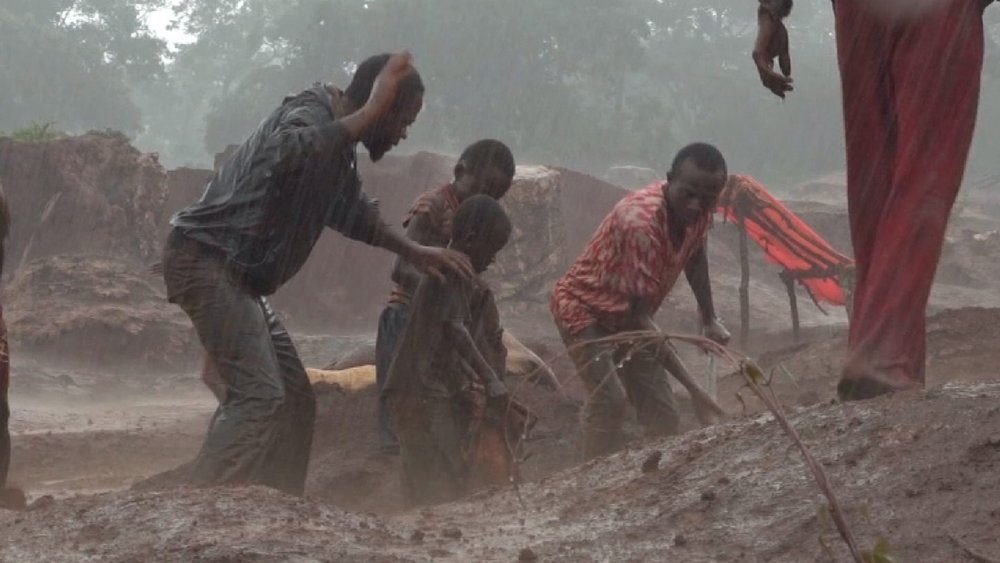
Little Dorsen works in pouring rain. Picture: Sky.
Cobalt is in high demand to produce batteries for mobile phones and, especially, electric vehicles; while a smartphone battery uses no more than 10 grams of refined cobalt, an electric car needs 15kg (38lb). As a result, supply is already in deficit with prices surging 150%. But there are no signs of this new wealth in the DRC, the world’s biggest producer. Instead, the UN has described cobalt mining in DRC as ‘one of the worst forms of child labour’ due to the health risks.
The situation is made worse by a system of small-scale informal mining. People just dig cobalt out of the ground and sell it to intermediary buying organisations, many of whom chose to smuggle it out of the country rather than declare it and pay taxes. This means tracing origins – and, in turn, monitoring the conditions in which the mineral is sourced – is nigh-on impossible.
Fairphone was created to prove to the wider electronics industry that it’s possible to create technology that is ethical and sustainable and that comes with healthier, more future-proof supplies chains – and that people will want it. And they really do. In the past four years, Fairphone has launched two smartphones and amassed a powerful community of more than 135,000 owners. And while it’s not as sleek or iconic as the iPhone, it does what you need it to do – with the added flip of ethical sourcing and circular design.
Van Abel didn’t want to be like other companies, giving countries with poor human rights records like the DRC a wide berth. He believed that abandoning small scale mining that existed in the DRC, one of the poorest countries in the world, would only exacerbate existing problems and deprive local communities, already reeling from a decade of war and violence, of a valuable – sometimes their only – source of income.
Instead, Fairphone partners up with existing initiatives to set up transparent, traceable supply chains. Recently, the company teamed up with Chinese refiner Huayou Cobalt, to create a traceable supply chain with the cobalt originating from a selection of artisanal and small-scale mine-sites in the DRC; the companies then work directly with the sites to improve working conditions.
The modular design of Fairphone 2 means that consumers can fix it themselves. Picture: iFixit.
The efforts of Fairphone doesn’t stop at elements however. In the Fairphone 2, Van Abel pioneered a modular design which means the phone, quite simply, lasts longer; when one part breaks down, the consumer can take the phone apart and repair it themselves. Spares are available for all of the parts that commonly fail in phones, including screen and camera. Experts have estimated the phone’s longer lifespan could mean a 30% reduction of CO2 emissions.
The blend of design and compassion means that the future is looking rosy. In September this year, Fairphone secured a hefty €6.5 million investment from Pymwymic (the Put Your Money Where Your Meaning is Community) Impact Investing Cooperative to scale up, giving the company the resources it needs to meet growing demand and increase its influence amongst supply chains.
And, in October, Greenpeace gave Van Abel’s company the highest grade (B) out of all the major electronics manufacturers included in its 2017 Guide to Greener Electronics. Given that it was the first time the Amsterdam-based company had been included in the report, it’s quite a coup. Fairphone’s response was practical and forward-looking.“While we’re delighted to receive this recognition, our achievements aren’t just about Fairphone,” it says. “What we really want is an industry-wide shift towards fairer electronics.”
The interest Fairphone has demonstrated shows how far consumers are starting to understand the importance of these issues – the tragic injustice of children like Dorsen working so hard for so little – but, according to Amnesty International, that understanding is only just starting to filter through to leading electronics and electric vehicle brands.
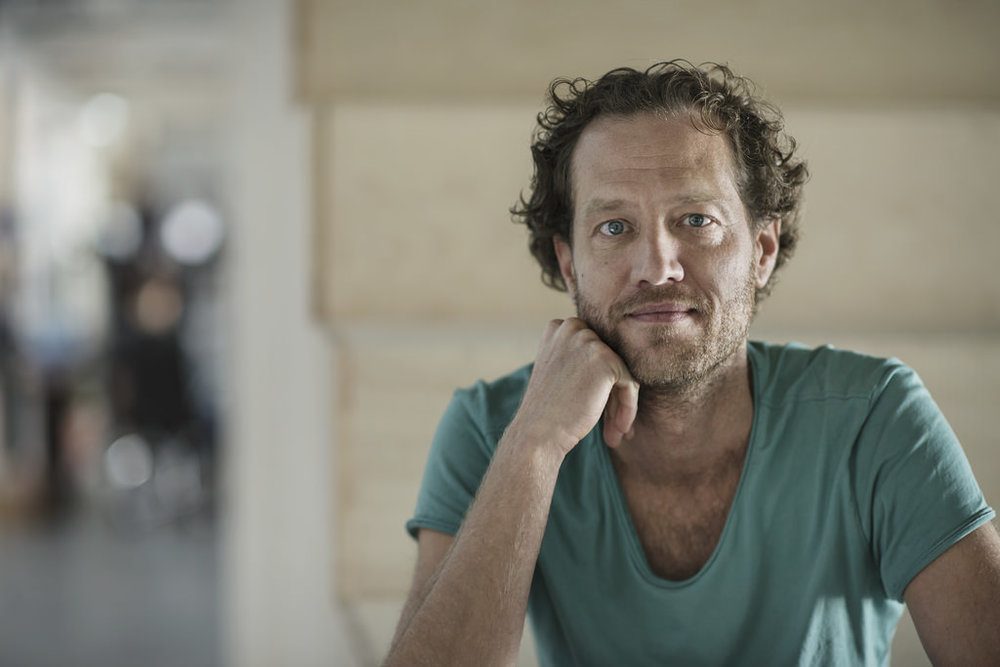
Fairphone founder and CEO Bas Van Abel. Photograph: Frank Bauer.
In its report “Democratic Republic of the Congo: Time to recharge: Corporate action and inaction to tackle abuses in the cobalt supply chain,” published earlier this month, Amnesty highlighted the lack of change in the conditions at the mine sites, laying the blame at the feet of electric car manufacturers. While leading tech firms such as Apple, HP, Huawei and Sony, and Hauyou Cobalt, have joined a body called the Responsible Cobalt Initiative, none of the 16 electric vehicle manufacturers Amnesty identified have done the same.
Given that carmaker Tesla, for example, plans to produce 500,000 cars per year starting in 2018 and will need 7,800 tons of cobalt to achieve this, it’s quite an omission.
“We’re all still at the beginning of the journey to make the electronics industry a greener place,” says Fairphone.“While we’re under no illusion that we can change how cobalt is mined and sourced overnight, we want to offer real solutions, and a real path to improvement, one step at a time. Because we believe that all improvements represent progress, no matter how small they might be.”
